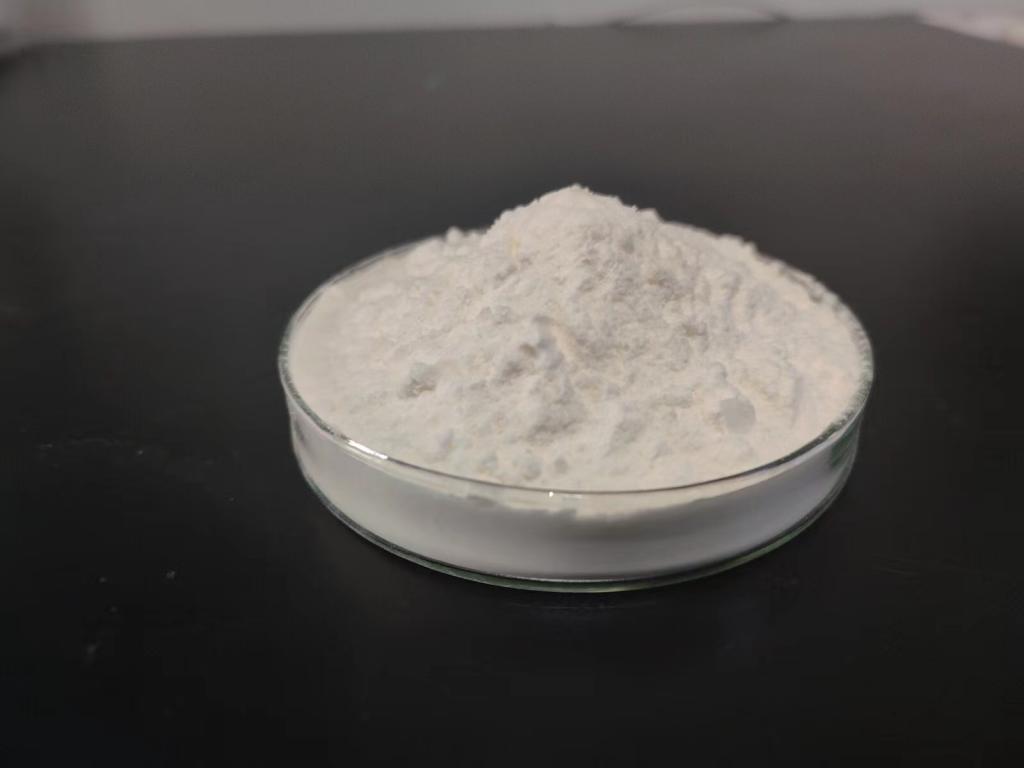Tel:+8618231198596

News
 CONTACT
CONTACT
 CONTACT
CONTACT
- Linkman:Linda Yao
- Tel: +8618231198596
- Email:linda.yao@dcpharma.cn
- Linkman:CHARLES.WANG
- Department:Overseas
- Tel: 0086 0311-85537378 0086 0311-85539701
News
Current Position:
Home >
News
>This ε-Polylysine hydrochloride helps extend the shelf life of perishable products.
This ε-Polylysine hydrochloride helps extend the shelf life of perishable products.
TIME:2024-03-21
Understanding ε-Polylysine Hydrochloride:
ε-Polylysine hydrochloride is a naturally occurring antimicrobial peptide derived from certain bacterial strains. It consists of multiple lysine residues linked by peptide bonds and exhibits potent antimicrobial properties against a wide range of microorganisms, including bacteria and fungi. ε-Polylysine hydrochloride is produced through fermentation processes and is commonly used as a preservative in food, cosmetics, pharmaceuticals, and other industries.
Mechanisms of Action:
The effectiveness of ε-Polylysine hydrochloride in extending the shelf life of perishable products stems from its mechanisms of action against microbial contaminants. As a cationic peptide, ε-Polylysine hydrochloride interacts with the negatively charged components of bacterial and fungal cell membranes. This interaction disrupts membrane integrity, leading to leakage of cellular contents and ultimately cell death.
Furthermore, ε-Polylysine hydrochloride's broad-spectrum antimicrobial activity allows it to target a diverse array of microorganisms, including both Gram-positive and Gram-negative bacteria, as well as various fungi. This versatility makes it an invaluable tool for preserving perishable products across different industries.
Applications in Food Preservation:
In the food industry, ε-Polylysine hydrochloride is widely used as a preservative to extend the shelf life of perishable food products. Its ability to inhibit the growth of spoilage organisms and foodborne pathogens helps maintain product freshness, safety, and quality throughout storage and distribution.
ε-Polylysine hydrochloride can be incorporated into food packaging materials, applied directly to food surfaces, or added to food formulations during processing. Its stability under different environmental conditions, including variations in pH and temperature, makes it suitable for a wide range of food products, including dairy, meat, seafood, baked goods, and ready-to-eat meals.
Benefits for Food Safety and Quality:
The use of ε-Polylysine hydrochloride in food preservation offers numerous benefits for food safety and quality. By inhibiting the growth of microbial contaminants, it helps reduce the risk of foodborne illness and spoilage, ensuring that perishable products remain safe and suitable for consumption.
Furthermore, ε-Polylysine hydrochloride helps maintain the sensory attributes of food products, including taste, texture, and aroma, throughout their shelf life. This contributes to a positive consumer experience and enhances the overall quality and marketability of food products.
Contributions to Food Security and Sustainability:
In addition to enhancing food safety and quality, the use of ε-Polylysine hydrochloride in food preservation contributes to food security and sustainability goals. By extending the shelf life of perishable products, it helps reduce food waste and minimize losses throughout the food supply chain.
Moreover, ε-Polylysine hydrochloride's natural origin and biodegradability align with consumer preferences for clean-label and environmentally friendly products. Its minimal ecological footprint makes it a sustainable choice for food manufacturers seeking to adopt more environmentally responsible practices.
Regulatory Considerations and Safety:
ε-Polylysine hydrochloride has been approved for use as a food additive and preservative by regulatory agencies worldwide, including the U.S. Food and Drug Administration (FDA) and the European Food Safety Authority (EFSA). Extensive safety assessments have confirmed its safety for human consumption at the levels typically used in food products.
Furthermore, ε-Polylysine hydrochloride is considered non-toxic and biocompatible, with no adverse effects observed in animal studies or human consumption. Its natural origin and minimal processing further enhance its safety profile, making it a trusted and widely accepted antimicrobial compound in the food industry.
Future Directions and Innovations:
Looking ahead, ongoing research and innovation in the field of antimicrobial compounds, including ε-Polylysine hydrochloride, hold promise for further advancements in food preservation and sustainability. Future efforts may focus on optimizing formulations, delivery systems, and application methods to maximize the efficacy and stability of ε-Polylysine hydrochloride in diverse food products and environments.
Additionally, continued collaboration between industry stakeholders, regulatory agencies, and research institutions will be essential to address emerging challenges, ensure compliance with regulatory standards, and meet the evolving needs and expectations of consumers.
Conclusion:
In conclusion, ε-Polylysine hydrochloride plays a critical role in preserving perishable products by inhibiting the growth of bacteria and fungi. Its mechanisms of action, applications, benefits, and safety considerations underscore its importance in promoting food safety, reducing food waste, and supporting sustainable practices in the food industry and beyond. By harnessing the power of ε-Polylysine hydrochloride, we can enhance the shelf life of perishable products, contribute to food security, and advance towards a more sustainable and resilient future.
- Tel:+8618231198596
- Whatsapp:18231198596
- Chat With Skype







